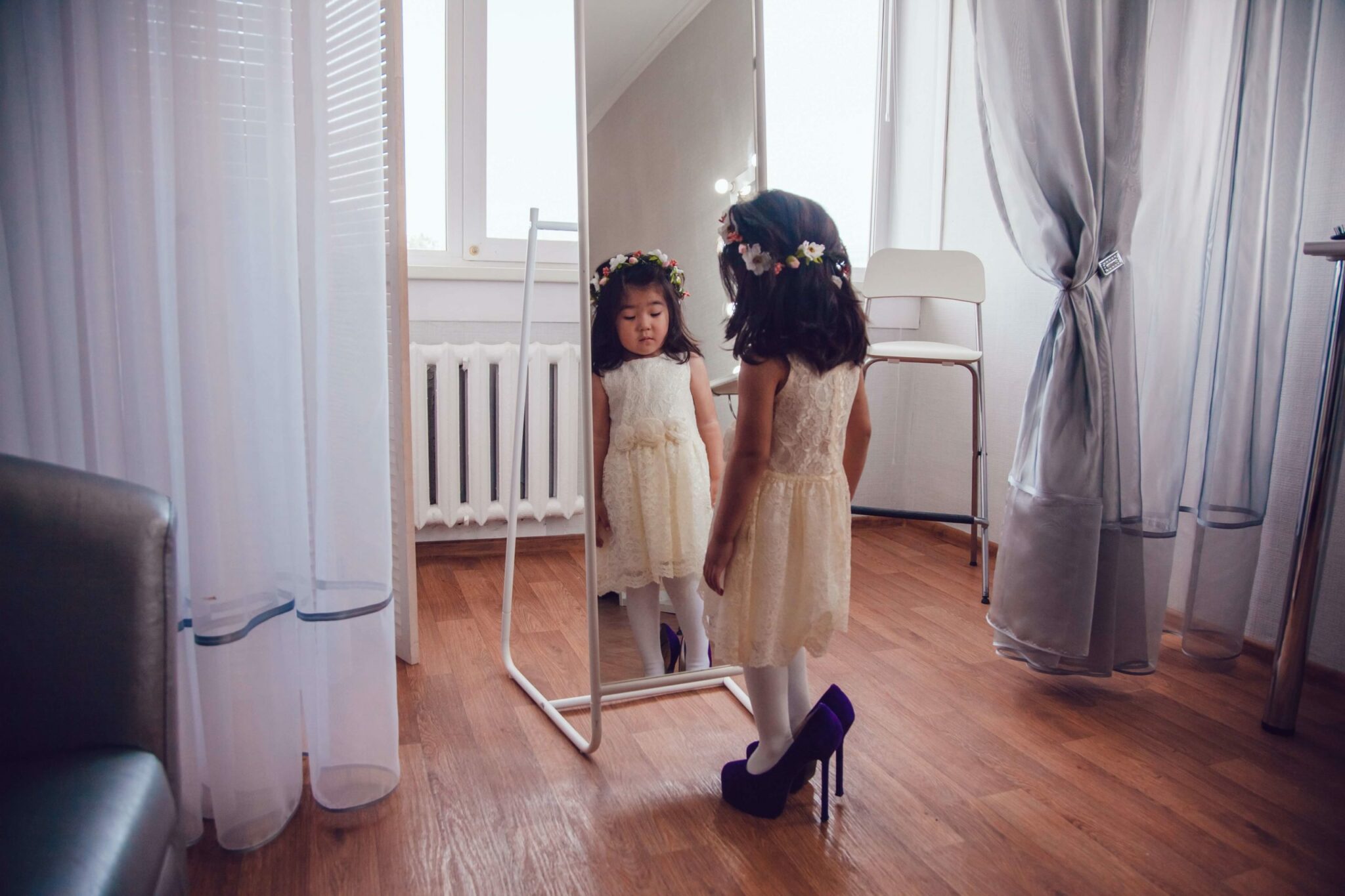Can you Give Your Baby a bad Body Image?

Whether you always realize it or not, you are your child’s role model—and what you do or say as a parent (and a person!) has a profound affect on your child’s developing psyche. This includes body image messages, which can be powerful in part because they are so common. Our culture is awash in subtle and not-so-subtle body image messages, so it’s only natural that even very young children will begin to absorb these messages early.
According to WomensHealth.gov, children as young as age 5 are familiar with the term “dieting.” Another poll from the National Eating Disorders Association found 80% of 10-year-old children are afraid of “being fat.” While it’s possible that children are hearing or seeing these messages in other locations, such as on television or interacting with other children and parents, it’s important that you reinforce positive body self-images at home.
A 2007 study published in the Journal of Pediatric Psychology studied 650 fifth graders and their parents regarding their feelings on body image. The study found children with a positive self-image were more likely to have positive relationships with their parents while the opposite was true for those with a negative self-image. Parents relaying negative or critical self-image messages at an early age can have surprisingly far-reaching effects on children. The research study also found that children whose parents gave them negative or critical feedback during childhood were more likely to have poor psychological functioning as they reached adulthood.
Perhaps one of the most difficult issues with parenting and body image is that many parents may not be intentionally relaying messages of negative self-image to a child. A parent who truly feels self-conscious about weight or appearance may have difficulty concealing these concerns. Even if the parent is not directly making statements about their child’s physical attributes, expressing concerns about your own or even those around you can have negative effects on your child’s personal body image. Parents may innocently voice an opinion that he or she needs to lose weight or go on a highly restrictive diet to achieve weight loss. Because children tend to group things into categories such as “good” or “bad,” carrying extra weight or having certain physical features may be associated with the “bad.”
To set the best possible example for your child, take the following steps:
- Refrain from making comments about your weight or appearance in front of your children.
- Emphasize that healthy eating and exercise are about feeling good, not looking good.
- Talk to your child about celebrities and television personalities, emphasizing that not all people are the same size and shape, and that’s okay.
- Explain to your child that gaining weight as he or she gets older is a normal part of growing up and should not be feared.
- Encourage your child to ask questions and emphasize that you are open to talk about things he or she may hear at school or on television.
If you notice your child is becoming fixated on food, refrains from eating or experiences sudden weight loss, speak with his or her pediatrician.
Sources:
- Gilliland, M.J and M Windle, J Grunbaum, A Yancey, D Hoelscher, S Tortolero and M Schuster (2007). Body Image and Children’s Mental Health Related Behaviors: Results from the Healthy Passages Study. Journal of Pediatric Psychology 32 (1) 30-41.
- MedlinePlus. Kids’ Body Image Shaped by Parents, Expert Says.
- National Eating Disorder Association. Get the Facts on Eating Disorders.
- Palo Alto Medical Foundation. How the Media Affects Teens & Young Adults.
- WomensHealth.gov. Body Image and Your Kids.
Powered by Bundoo®










